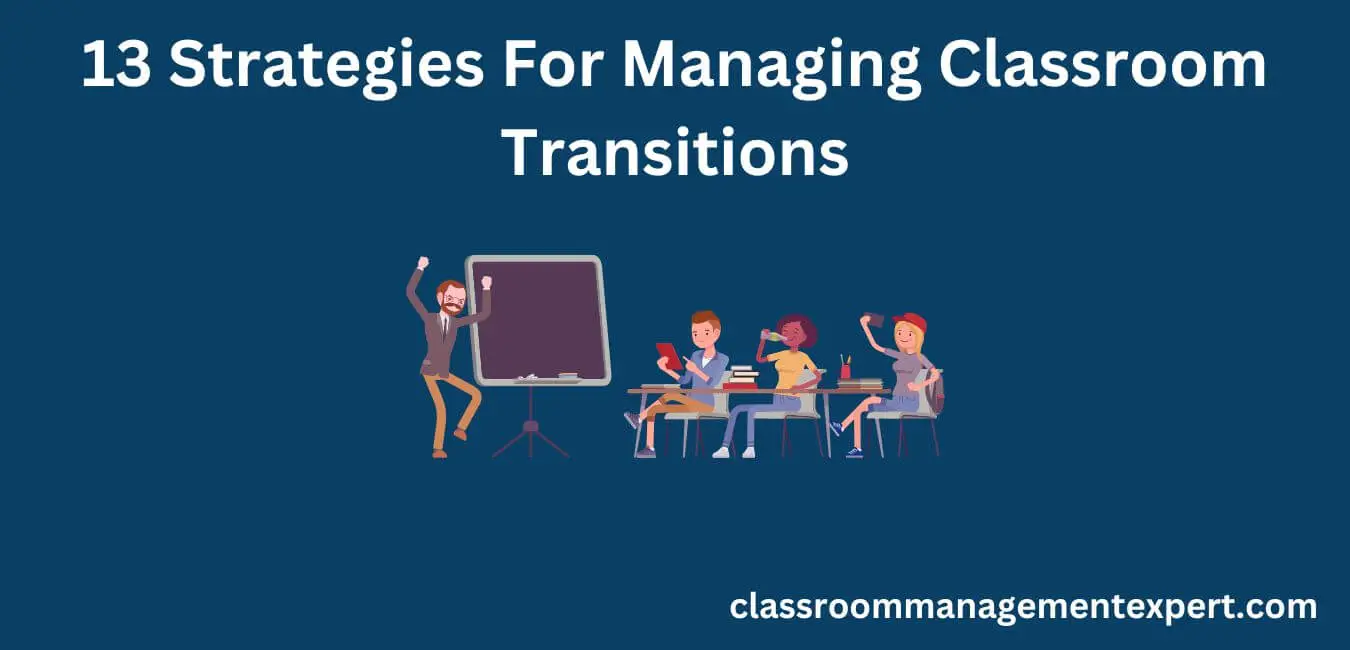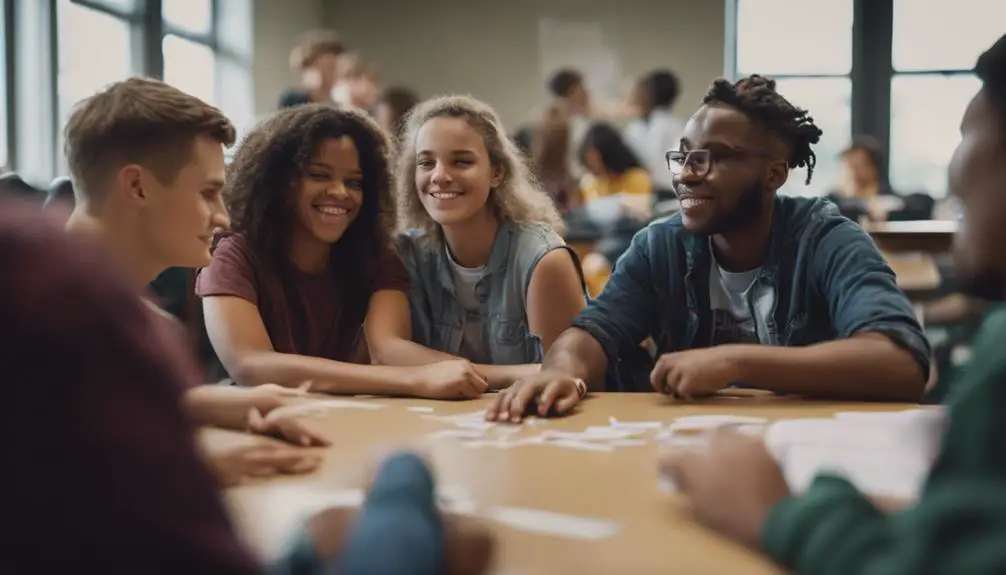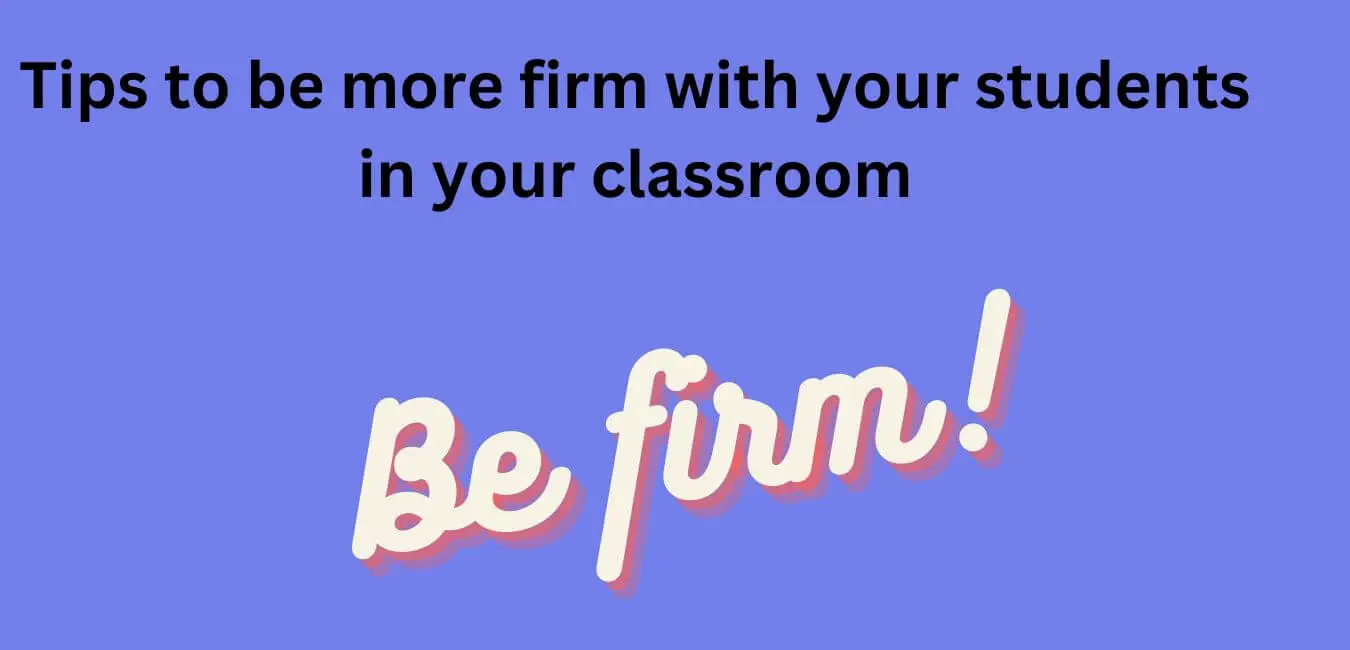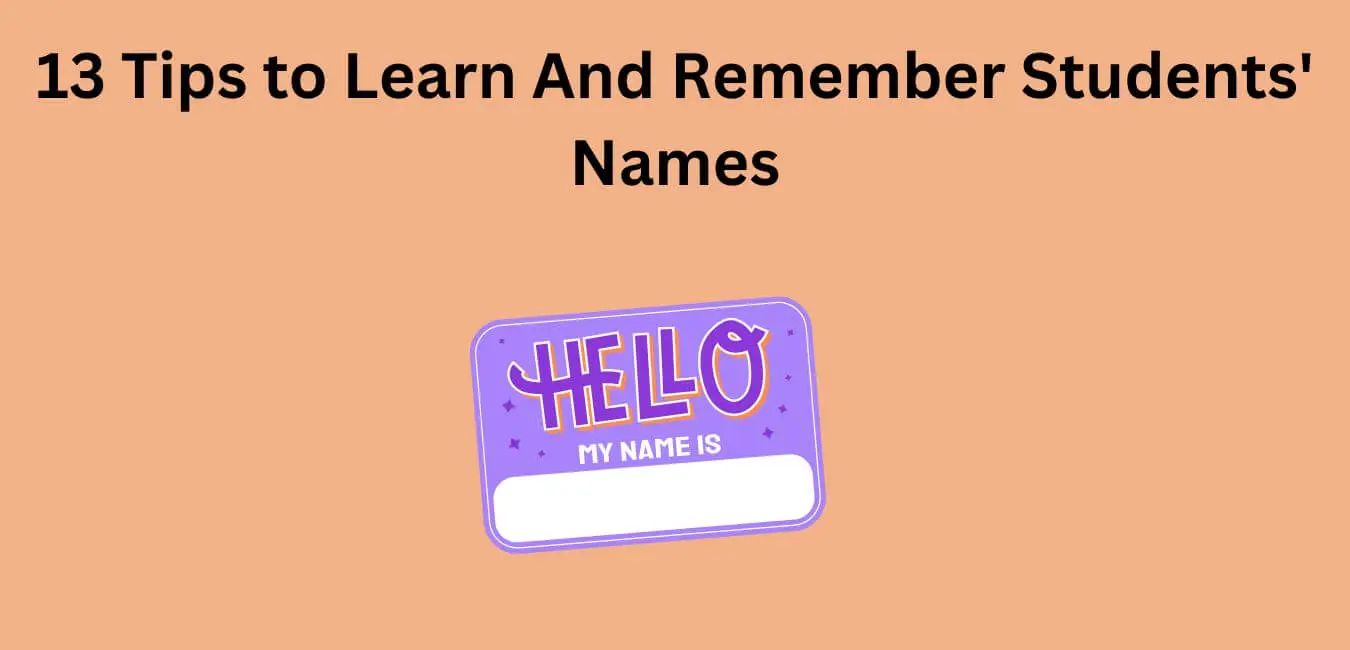Rudeness is a common occurrence in today’s classrooms. It can be hard to deal with and often it makes us feel frustrated, sad, and angry. When we are feeling this way, it is important to remember that the rude student doesn’t have anything personal against you–they just don’t know any better. This blog post will provide some helpful tips on how to handle students who are being rude or disrespectful so that they do not become habitual offenders.
What are the features of rude Students?
There are several features that can suggest a student is being rude. Some features to watch out for in students include:
1. They talk back to the teacher.
2. They ignore teachers’ requests.
3. They don’t do any work given to them by teachers.
4. If they don’t like a project or activity, they will say so and not participate.
5. They correct their teachers publicly.
6. Students can be rude to some teachers and nice to others.
7. They make faces behind the teacher’s back.
8. They don’t care if they get detentions or not.
9. They try and fail on purpose.
10. Students can be rude for no apparent reason.
Why are students Sometimes Rude?
It can be quite frustrating to deal with rude students. We hope this article will help you cope and make your life easier!
Rude behavior by students is very common and there are many different reasons why it happens. Here we look at 11 of the most common causes:
1. They feel Chanceless
We all learn from experience, so if a student has had a mostly bad experience with school, they will not have much incentive to behave well. This might lead them to become rude.
2. They are Challenged
Many students don’t always know how to behave in class and might get rude if they feel unsure of their answers. Their behavior can also clue you in on what kind of help your struggling students need.
3. They are Hungry or tired
No child can be expected to focus if they are hungry. And some students might be fed up and get rude because they had trouble sleeping the night before, so this is another great time to give them a break.
4. They feel Threatened
Sometimes students become rude when they feel vulnerable about certain things at home or school. Keep an eye on these students and make sure they feel safe.
5. They are Overwhelmed
When students come from tough backgrounds, where the expectations of them might be different than what’s expected in class, frustration can fill their minds. And if that happens often it can cause them to get rude. Of course, it’s not always easy to figure out what might be on a student’s mind, but you can start by checking if their schoolwork is giving them the challenge they need!
6. They are Troubled
In many cases, students will become rude when they have had some sort of troubling experience in life. A student who was bullied at recess or lost a family member might be acting rude to express their anger and pain. If you suspect any sort of troubling situation in your student’s life, ask them if everything is alright or help them seek counseling at school.
7. They feel Excluded
Students will act rude when they feel like they aren’t being heard or respected by you and the rest of the class. Make sure to check in with them regularly and let them know they are being heard.
8. They have Low confidence
Students who lack confidence will often get rude as a way of attracting attention from others because for some reason it’s not coming to them through other means. Help boost their self-esteem by paying attention to what they are good at and encouraging them to do their best.
9. They want Attention
It’s pretty easy to spot when a student is getting rude because they want your attention, but it can be hard to figure out what the underlying issue might be. Try consulting with their teachers or parents first, as this way you will have a better understanding of why they might be acting rude.
10. They are Tired of being Cooped up
Some students might feel like classes are too confined and need to learn in a different way, so see if you can give them extra time to work on their own or with others outside of class. For example, some kids really shine when they are asked to teach what they know to someone else, so try having them share their knowledge with a peer.
11. Anti-Social
In our recent world, more and more people are being isolated from people around them because they can roughly do or get anything they want without necessarily interacting with people. Students from those environments will likely lack social and emotional awareness. With that, they can become rude around people.
Where do Students learn to Be Rude?
Has it ever occurred to you that where you are might be influencing the behavior of your students in a negative way? Where they learn to be rude is in school, their environment. Here is a list of five places Where students learn to be Rude. Some of these places may not always apply but others most definitely will.
In school classrooms:
Students learn to be rude in the classroom, and this is probably one of the most common places where students demonstrate rude behaviors. There are many reasons why students may act this way, but it’s usually because they do not feel respected or that they lack respect for their teachers and classmates.
At home:
Students can also learn to be rude at home, especially if they do not have a strong support system of adults at their homes or someone they can look up to and admire. Without these types of people around them, kids start to become more self-centered and think that acting this way towards others is okay.
In social networks (online & offline):
Students also learn to be rude in their social networks, most likely because they spend a lot of time on these platforms interacting with others. They often lack face-to-face communication skills which results in them being less polite and more self-centered when communicating online or offline.
In their communities/neighborhoods:
Students can also be rude in their communities and neighborhoods. This usually occurs when a child feels as if they are not part of a group or do not have anyone to look up to. If a student does not feel as if they belong or that other people care about them, they can begin to act out and become rude.
In their schools’ sports/clubs/groups:
Finally, students learn to be rude at school because they are not involved in any clubs or groups. It is very common for students to feel as if they are being excluded from something, especially if it’s a sport or club that they really want to be a part of. If students do not feel as if they are able to fit in or that people care about them, they will often start acting out and become rude.
How Does Students’ Rudeness Affect Classroom Management?
As teachers, we need to understand how our words affect them as well as their rude behavior affects us both. Sometimes we might be tempted to be rude back, but it is best not to stoop down to their level. Let’s keep in mind that we want the students’ focus and attention on learning and not on us.
Here are 10 ways:
1) Students lose interest and show dislike for learning activities and subject matter.
2) Inappropriate behavior and comments disrupt the learning environment increasing the workload of teachers.
3) Fewer students are willing to participate in class, disrupting the learning environment. Students’ rude behaviors impact other students negatively, especially their motivation to study.
4) Teachers get frustrated, and their abilities are compromised.
5) Rude students may be ignored or isolated because they’re rude. This affects their learning abilities.
6) Everyone is affected by negative energy – negativity spreads like wildfire
and everyone is negatively impacted.
7) Students’ rude behavior and off-task talking affect their ability to learn.
8) It may cause some teachers to yell at students for behavior that could have been easily prevented with positive classroom management.
9) Rude comments from one student affect the learning environment of the whole class.
10) When teachers feel disrespected, they are far more likely to respond with an aggressive tone.
How To Deal With students who are rude to their friends?
Hey, I’m a teacher. I’m passionate about my work and empowering young people to make the right decisions in life. I love motivating them and showing new perspectives on things they’ve never thought of before.
Some days can be pretty tough though. Not all students are nice to their teachers and a lot of the time you get students who are not willing to listen or cooperate. It can be really frustrating when students speak rudely, especially so when the comments are directed at me.
However, there is a way of coping with this and I’m here to tell you my top 15 steps on how to deal with rude students. Be sure to give them a go!
1. Be a positive example:
Positive reinforcement is a great way of getting students to listen and respect you. If you’re always calm, rational, and patient when dealing with different situations then they will most likely follow in your footsteps. Remember that young people look up to you and if they see you being calm in difficult situations then it will encourage them to do the same.
2. Stay positive:
When students are rude, often their motives are to get a reaction out of you or put you down. Try your hardest not to be sarcastic, crude, or cruel when replying for example- ‘well, if that’s the case then maybe you should go and work somewhere else.’ Instead, keep your head up high, smile, and remember the bigger picture.
3. Try to find out why they are behaving this way:
Often there will be a reason as to why students are acting this way. For example, if it’s during exam season and you notice that they are struggling with their grades, then it could be because they’re not putting the required amount of work in.
4. Don’t take things personally:
I know this is easier said than done but students will say un-constructive and rude remarks about teachers all the time, whether you’re there or not. Often, they won’t mean anything by it and you can always ask them about their comment for a clearer insight.
5. Keep calm, don’t have a go:
I know this is going to be hard but remember that students often push your buttons because they want a reaction from you. When you remain calm and collected, they will realize that you don’t care about their comments.
6. Avoid physical confrontation:
Try your best to avoid any possible physical confrontations with students who are being rude, even if it means leaving the room until they have calmed down. If you can, then try and do this as soon as they start behaving disrespectfully.
7. Be consistent when using consequences:
If you choose to use consequences when students overstep the boundaries, make sure that you are consistent in these actions. Remember that if a few students get away with interrupting your lesson for example, then others will follow in their footsteps. Find out how to be consistent here.
8. Do not burn any bridges:
Sometimes it can be really tempting to take revenge on students to get them back for their bad attitude, but this is the worst idea ever! It will most likely result in you getting into trouble and can ruin your reputation in the school.
9. Report any incidents:
If students are being rude regularly or if it’s starting to affect your mental health then report them to senior staff. Let them know what is going on and how it is affecting you personally.
10. Keep calm:
Be reassured that if students are disrespectful, they are most likely nervous too! They don’t want to be in your lessons any more than you do so just remember that the situation will pass, and it won’t last forever. Find out how to keep your calm here.
11. Don’t give them any extra attention:
If students are rude to you, do not give them the satisfaction of knowing that they have upset or annoyed you. Instead, carry on as normal and act like nothing is wrong.
12. Be the bigger person:
If a student oversteps your boundaries by shouting out in class or interrupting your lessons then do not give them satisfaction by getting angry back. If you want to, then answer their questions calmly and provide no extra attention.
13. Don’t take it personally:
Often students will say really un-constructive things about teachers because they are feeling insecure or trying to impress their friends. Try not to take what they say too seriously, as they are not always accurate or true.
14. Use humor to your advantage:
Students will stop interrupting or ignoring you if they think that it is funny! For example, try sending them humorous e-mails to get everyone’s heads down – this can also be a good way of getting students to do the extra credit work too!
15. Remember that they will be leaving you soon:
If students are rude to you, remember that they will leave your class and move on with their lives sooner or later. Focus on what really matters and don’t let their opinion get in the way of the bigger picture!
Final Thoughts
The list of 15 steps should help you deal with students who are rude to their teachers. There is no doubt that this behavior can be detrimental and even lead to a loss in productivity, but the good news is that it’s not impossible to manage or control. By following these simple tips, we hope your work environment will become more manageable and enjoyable! If all else fails, then let us know – our team of experts would love to partner with you in creating an actionable plan for success at school. Which step from the list do you think has been most effective when dealing with unruly students? Visit our blog page for more articles.



















